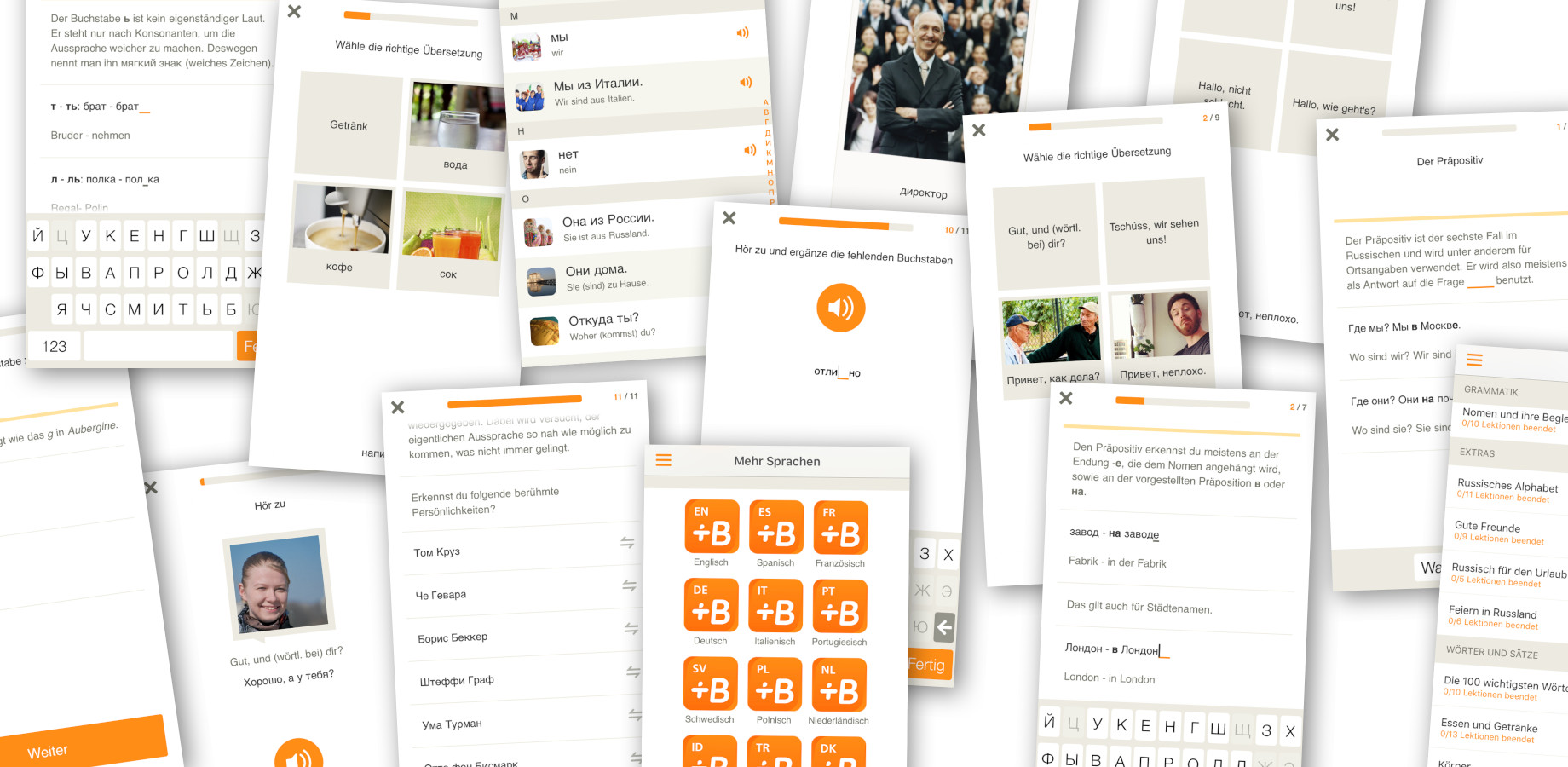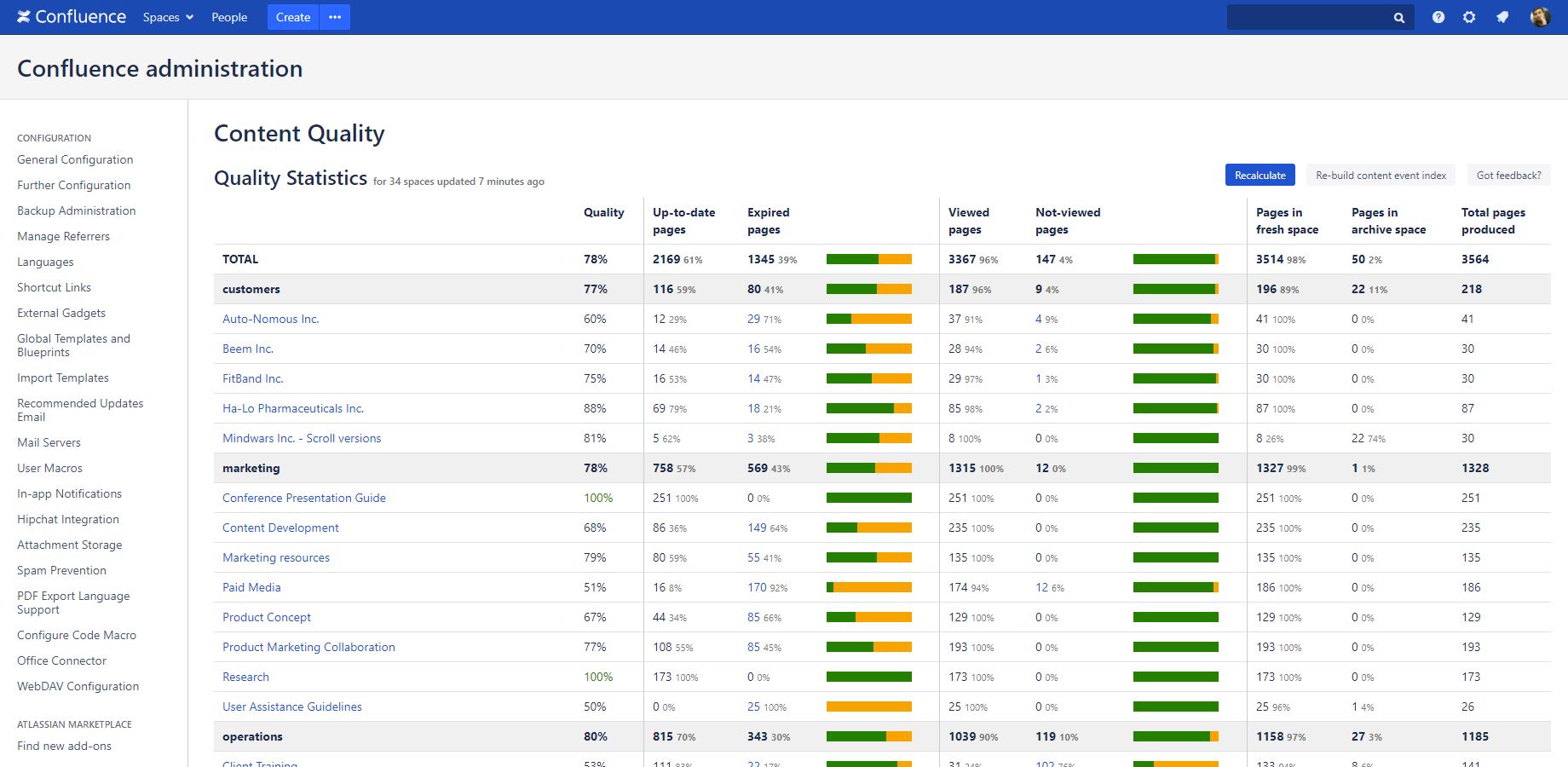Babbel is a subscription-based, online language learning platform, with a team based in Berlin, Germany.
In the past 11 years, they became one of the leading e-learning services, currently offering 14 languages for their more than 1 million subscribers. Babbel is unique in its ability to get you to really speak a new language, fast. It doesn’t only explain the grammar, it makes you conversational!
Babbel's super-popular app
In the background, around 450 Babbel employees make sure users get the consistent quality of service they are used to. One team, however, has a special responsibility: ensuring that all other teams have access to the right information internally, so they can do their best every day.
It’s the Knowledge Management team inside Babbel.
This team is tasked with capturing, sharing and creating all forms of information that is critical to the operation of business functions. They build and execute the workflows necessary to keep all content up-to-date, relevant and easy-to-find.
We had the pleasure to talk to Stephan Einbacher, Knowledge Manager at Babbel, and learn about the challenges of identifying and clearing obsolete content from Confluence. Their approach and experience might very well be inspirational to other knowledge managers as well.
From editorial work to process management
Stephan, let’s get to know you a bit better! How long have you been with Babbel?
I work as Knowledge Manager in a team of three, for 4 years now.
What do you love most about your role?
That it is very diverse. From editorial work and event management to meeting-moderation and change and process management: it's all in there.
How much experience do you have with Atlassian tools?
I work with Confluence, Jira and other Atlassian products since I started here at Babbel, so I'd say: quite a bit.
What project are you currently working on?
Two bigger projects at the moment:
-
Establishing a meeting format that allows people to easily learn from the experience of others before taking action and connect colleagues with different professional backgrounds.
-
Improving the off-boarding experience by implementing a way of explicitly sharing tacit knowledge, even when no successor has been found yet.
Content Management with Confluence at Babbel
Take us back to the time when you discovered your need for content lifecycle management. What was the business problem that made you look for a solution?
The company uses Confluence as a Content Management System, but the uncontrolled accumulation of content created more problems than it solved.
We realized that, without managing how long a certain type of content is offered as relevant, people will have difficulty deciding if they are working with accurate information. Or without an automated way to archive old Confluence pages, the system will get more cluttered every day.
We decided to look for a sophisticated tool to manage the lifecycle of Confluence content when people started complaining about Confluence. Content was not easy to find, and if you did find it, a lot of it was outdated but not recognizable as such, so decisions might have been taken under wrong assumptions.
In hindsight, we should have implemented a Confluence content lifecycle management system earlier, instead of waiting until we had a painful problem.
Why did you choose Better Content Archiving for Confluence to solve this problem?
We tried to come up with a solution with the tools we had, but after a while, it was all just workarounds and improvisation.
Then we looked for an app, and Better Content Archiving provided just what the company needed.
Tell a good example of your use cases! How do you use the app?
The Content Quality Statistics give a quick and reliable overview of which departments we should focus on in terms of keeping the content up-to-date.
Content Quality Statistics calculated for Confluence Spaces
The customizable Archiving Configuration per Space allows the different teams to set their content management rules autonomously. Very useful not having to peek over everyone's shoulders.
What benefits did Better Content Archiving bring to your team and Babbel in general?
It helps us with our main goal of eliminating outdated content from the Confluence search. We need to provide always relevant content to our users, so they make decisions based on current and relevant facts.
Another big benefit is that the teams can configure their archiving routines autonomously if they need to, while at the same time my team can potentially steer the process without having to micro-manage everything.
What's your message to anyone thinking about trying this app?
It is more like a piece of generally good advice for Knowledge Management: whenever you try to implement something new, don't try to convince everyone beforehand - plan well, execute, and deal with the critics later.
And a more "archiving-specific": start with long time-spans and few notifications and gradually adjust from there.
Can you be more specific about this last one?
Let’s say you are about to clean up a large Confluence instance - by large I mean thousands or tens of thousands of pages - that hasn’t been cleaned for many years, say 10 years.
Set up your first archiving rule to archive only the pages that haven’t been edited in the longest time, like in 10 years. Don’t try to clean up everything from the past 10 years in one go. This will hopefully be a relatively small batch of pages for first. Then shorten the time-span to 9 years, and so on, until you reach the desired state.
Do like the Babbel team and improve your Confluence content quality!


